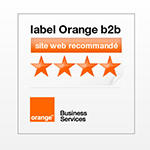Of the numerous oxymorons flourishing on the web today, one is particularly disturbing for me: the Personal Brand. First coined in 2003 in a book from David McNally and Karl Speak, “Be Your Own Brand: A Breakthrough Formula for Standing out from the Crowd”, the term is today omnipresent in marketers and social media guys mouth. But, as branding is not a game and reflect a complicated reality, assimilating yourself to a brand can lead to serious disillusion or misconception.
Not all brands are created equal
Not all brands are created to sit at top of the pyramid. Initiation brands, for instance, shine at being dumped after some time, and prosper quite happily with that. Despite Fabergé being a long-term luxury brand, Brut 33, one of its best-sellers, is clearly aimed to young people who abandon it for more sophisticated fragrances. Very few people want to excel at initiating others, while being forsaken for larger expertise, despite there would be an important need to fulfill.
Sell or tell ?
Brands have one, and only one, ultimate goal: selling. And each and every move they make, every story they tell, is aimed at this single commercial reality: selling more, selling better. Brands must listen to customers, engage with them, build a whole experience for them, but it won’t change what they arre created for. On the other hand, even if you have to earn your life, to find a fantastic job, even if your ultimate dream is to become a multi-millionaire mogul, you are free to learn, interact, enjoy other people’s company, make some mistakes, for free. Men and women are social animals, not commercial artifacts.
Context or content
Brands have to position theirselves. Competition is harsh, and they have to find and maintain the right context to promote their products and services. Top-of-mind notoriety and maximal exposure are great brands values. But what makes big brands do not necesary makes happy people. Of course, you will benefit from self-promotion, notoriety and influence will increase your pride. Valuably. But content is what makes drive people, not context. And as you gain popularity, you will trigger jealousy, resentment and over-reaction from people with as valuable content as yours. Increasing wisdom and influence is not a commercial competition, and mustn’t be considered so.
If Siva was a brand
He would be able to handle as many services or products a brand has to manage. For range of products, services line and brand extensions are intrisic part of a brand’s life. But you aren’t Siva, and you can only handle a very small range of things at a time. You have to concentrate on what you do best, and stick with it. Nothing bad at it, but if you were a brand, you would slowly die of not being able to expand your grasp of the market you adresss.
So, stop about being a brand. Be bold, be trustful, insightful, useful. Be yourself.






Pingback: Digital Biographer™ » Posts about Personal Branding as of March 10, 2009
Pingback: Twitter Trackbacks for A (personal) brand is a brand is a… Really ? | Sonnez en cas d'absence [debaillon.com] on Topsy.com
Increasing wisdom and influence is not a commercial competition, and mustn’t be considered so.